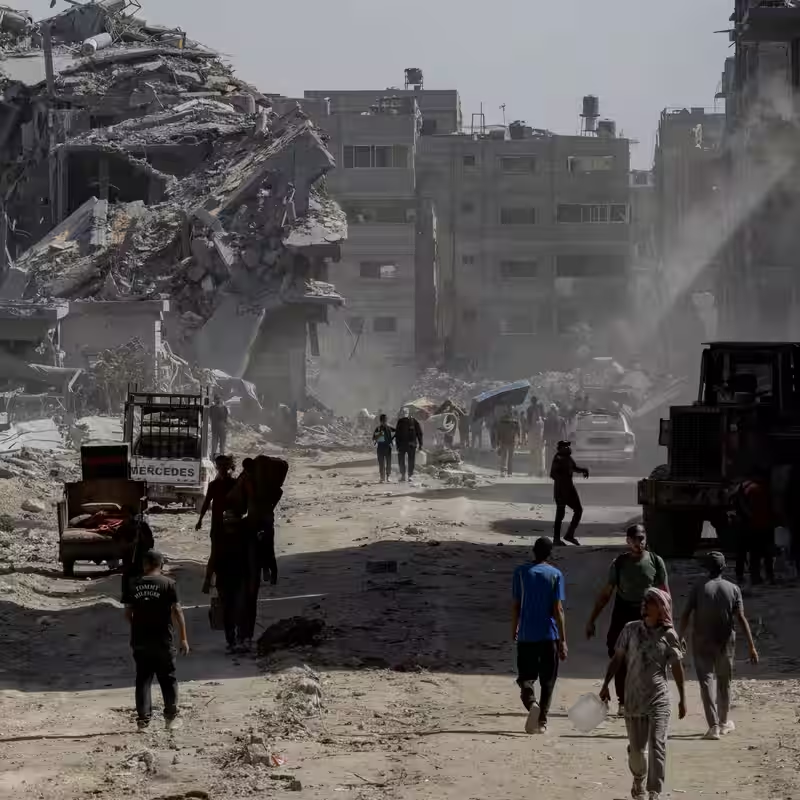The fragile Israel-Hamas cease-fire has held for nearly a week—but behind the calm lies a ticking time bomb. At the heart of the tension? A stalled exchange of the remains of hostages and prisoners that could unravel the entire agreement.
Where the Israel-Hamas Cease-fire Stands Today
As of Thursday, October 16, 2025, the Israel-Hamas cease-fire remains technically intact. Yet both sides are locked in a high-stakes standoff over one of the deal’s most emotionally charged provisions: the return of the bodies of Israeli hostages still in Gaza and Palestinian detainees held by Israel.
Hamas has returned 10 bodies to Israel so far—most belonging to former hostages taken during the October 7, 2023 attacks. But the cease-fire agreement called for the immediate return of all remaining remains, estimated to be around two dozen. That deadline has now passed without full compliance.
Why the Hostage Remains Issue Matters So Much
For Israeli families, every unrecovered body represents a wound that cannot heal. For Palestinians, the return of their dead is equally symbolic—a matter of dignity and justice. The cease-fire framework acknowledged the logistical nightmare of recovering remains amid Gaza’s widespread destruction, even outlining a process to extend deadlines and provide recovery assistance.
Yet mistrust runs deep. Israeli officials suspect Hamas is withholding remains as leverage. Hamas, in turn, accuses Israel of failing to uphold its own commitments regarding Palestinian prisoners.
Key Sticking Points in the Cease-fire Agreement
| Issue | Status | Sticking Point |
|---|---|---|
| Return of Israeli hostage remains | Partially fulfilled (10 of ~34 returned) | Hamas claims difficulty locating bodies in rubble; Israel demands full compliance |
| Return of Palestinian prisoner remains | Unclear / delayed | Hamas insists Israel hasn’t delivered promised remains |
| Humanitarian aid access | Ongoing but limited | Aid groups report bottlenecks at border crossings |
A Fragile Peace Built on Mutual Suspicion
Analysts warn that without swift progress on the remains exchange, the cease-fire could collapse. “This isn’t just a procedural delay—it’s a test of good faith,” said Dr. Leila Farouk, a Middle East conflict specialist at Georgetown University. “If either side believes the other is acting in bad faith, the entire framework could implode.”
The situation is further complicated by internal pressures. In Israel, families of the missing are holding daily vigils, demanding government action. In Gaza, public frustration over reconstruction delays and continued displacement is mounting.
What Comes Next?
Diplomatic channels remain open, with Egyptian and Qatari mediators shuttling between the parties to salvage the deal. A joint recovery team—comprising international forensic experts—has been proposed to assist in locating and identifying remains in heavily damaged areas of Gaza.
But time is not on anyone’s side. Every day without full compliance chips away at the already thin layer of trust holding the cease-fire together.
For now, the guns are silent. But silence, in this context, may be the loudest warning of all.




